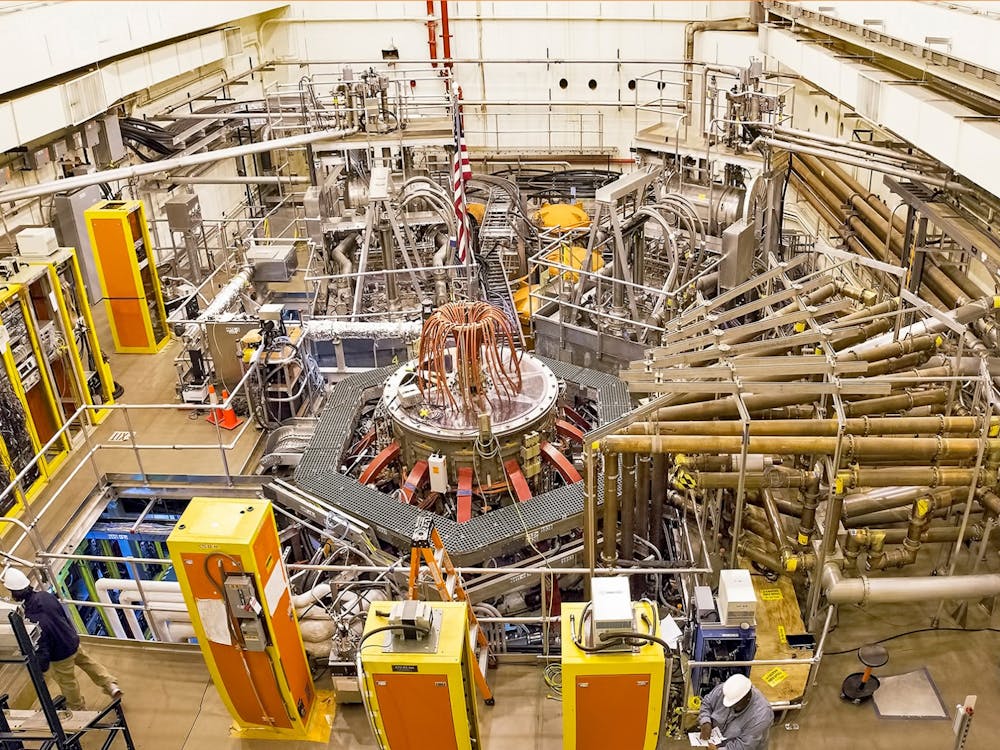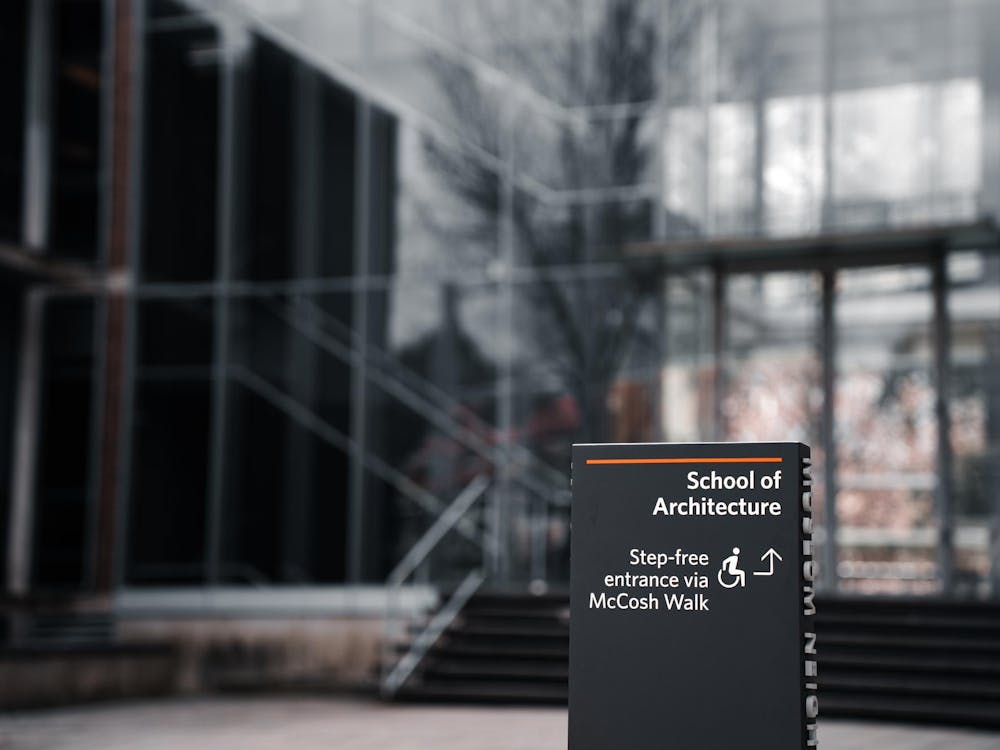Though it has been open for only one year, the Frist Campus Center is fast becoming a hub of student activity. 'Prince' staff writer George Spencer sat down with campus center director Paul Breitman yesterday to discuss Frist's place on the Princeton campus.
'Prince': How would you characterize Frist's performance after one year of being open? In what ways has it exceeded or not achieved expectations?
Breitman: My response is not just going to be based on my impression. My response is going to be based on what I have received as feedback from the campus community, because that's what really matters.
Our philosophy here at Frist, and the philosophy we have implemented, is that we are very service oriented and very client centered. As you can see around the building we have comment cards, we constantly ask for feedback. We want people to tell us how we are doing.
When I came to Princeton two years ago, I developed, after talking with about two hundred members of the community, a list of assumptions and expectations for the center, as to what the community is expecting Frist to be, and I used that as the basis to develop our vision, mission and goals.
All of the feedback we have gotten is that I think we have exceeded that at a much quicker pace than I anticipated. I sort of developed a three-year plan that Frist would become the community center, gathering place and the hub of activity at Princeton, and I would tell you that based on utilization and based on the feedback we are receiving, that we've already done that. In fact, we are full. We need more spaces. We need more opportunities to meet the expectations of the campus community.
People feel comfortable at Frist, because it truly is the community center, and this is the place to be, the place to be seen, the place to interact with all different levels of the community. Also, I think we have created an environment here where everyone feels welcome.
P: Are there areas where you still see room for improvement in Frist?

B: I think there is always room for improvement. I guess it's "growth" as opposed to "improvement." I think that an organization and entity like Frist has to evolve, has to grow, because our constituencies are growing and changing. So, we have to really have our ear to the ground, so to speak, and stay in close contact with our constituency, to make sure we are meeting people's needs. What really makes Frist a special place is what happens within the building.
P: What is on the Frist horizon?
B: Well, we are always open to input and suggestions. One of the new things that we are going to be doing is partnering more with some of the residential colleges and having residential colleges have programs here, recognizing that even though they are not in the residential college they are still residential college programs.
One of the things we have done this year is the study halls that used to take place in each individual college. We have now brought them all together in Frist, so that it is much more efficient.

We are also looking at new food service options. We're trying to add on the success that we've had, but to keep it fresh and creative. We are trying to see what else is going on in the commercial sector and to bring some of that here.
P: What are the specifics of the anthrax scare from Monday night?
B: The specifics are that in no way has it been substantiated that it was anthrax. What it was is that a graduate student was using one of the public use computers, out on the 100-level near the Welcome Desk, and he saw a powdery substance on the keyboard.
And because of what is going on, with anthrax in the mail and the computers being near mailboxes, he was concerned and registered that concern with us. As a result, we passed that concern to public safety — which is the appropriate thing to do. Public safety passed it on to the Borough, and the Borough decided to bring the hazmat people in. And so the powder was collected, and they have sent it off for analysis and we will know in a couple of days what it was.
P: Were you pleased with the way Frist was able to respond as the real hub on campus on the day of and days following the September 11th attacks?
B: I truly was very pleased and, I guess, proud, that we responded that way. Again, it is situations like that that sort of solidify Frist as the community center and the hub and people looking to Frist.
When I came here and we started talking about what Frist would be, I very often would tell people in groups that Frist should be a place where we can celebrate our accomplishments, where we can come together and debate issues, and when there are crises or problems we can come together as a community. And I have to tell you, it was the most emotional thing I have ever experienced watching three or four hundred people watch the TV while all this was happening on September 11th.
For those of us at Frist, we were immediately thrust into this response mode. We very quickly got the response center up and running, and that very day it happened, we made the decision and implemented plans to stay open 24 hours, and that was really valued and appreciated by students.
P: How does this student center compare to the ones you have managed in the past?
B: I was Associate Dean of Student Centers and Student Activities at Rutgers for 20 years, and I had three campus centers of varying size.
They were much more commercially oriented, because the campus centers at Rutgers weren't funded by the institution. That was something that always concerned me, because we were never able to create a sense of community that we have very quickly here. I think a lot of that is the difference between a state institution and a private institution.
Frist is funded by Princeton University, so the emphasis is not on commercialism and we are able, therefore, to focus on community building activities. So I think the biggest difference is the sense of community and the sense of community ownership of Frist.
P: What is the status of the Beverage Lab's bar?
B: There was discussion, even before I came, that there would be alcoholic beverages sold in the Bev Lab, mostly focused toward graduate students and faculty. This was certainly our intent from the very beginning.
But, given the high sensitivity by the Borough and the situation with drinking on the 'Street' and underage drinking, it was pretty much determined that we would not be successful in trying to get a license through the Borough and through the state.
Initially, I think the reason it was desired was because we were afraid that maybe people wouldn't be coming to the center. But our experience has been that people come, and alcohol is not necessary to draw them here. So, we are really not actively pursuing this.







